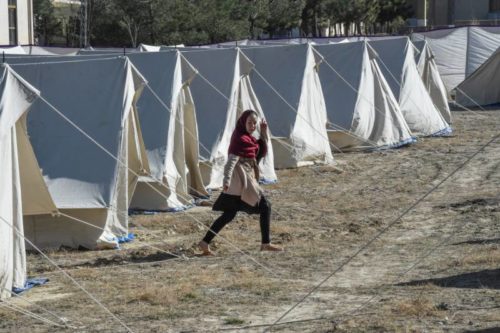In December 2019, when a mysterious virus outbreak happened in Wuhan, China, hardly anyone in the world thought that the disease would spread beyond China’s borders as a pandemic taking over the entire planet.
China has roughly 1.386 billion population, and shares borders with 14 nations, including Pakistan. When China was closing its last quarantine camp following the draconian measures fighting and successfully containing the Corona Virus (Covid-19) outbreak to mostly Wuhan province, Pakistanis never imagined having to deal with the outbreak within its boundaries. As a result, initial reports of Covid-19 outbreak were never taken seriously and brushed aside as an issue ‘internal to China’ as the nation wasted precious time on rumors and gossips. Some saw the virus as God’s wrath, others pinned it on ‘highly unhygienic’ eating habits of the Chinese people. The ‘pious’ among them believed, as a Muslim nation, Pakistan was immune to viruses born out of unclean dietary conditions due to Islam’s strict dietary guidelines regarding meat (Halal), as well as the hygiene maintained as part of five-times daily prayer. Some saw spirituality and prayers as the cure, others touted their ‘Totkas’ —home remedies— as the cure for the virus. Nevertheless, it was interesting to note, once the highly infectious and fatal nature of virus became apparent, those prescribing ‘totkas’ and prayers lined up to buy masks, and the ‘pious’ started distancing from their own congregations.
Pakistanis started considering Covid-19 threat seriously after Saudi Arabia took unprecedented steps banning pilgrims from Umra and Hajj to prevent spread of the virus, while in neighboring Iran after enduring several fatalities, the government started shutting down the sacred shrines and other important religious sites to tens of thousands of pilgrims.
The highly infectious and fatal nature of Covid-19 virus became apparent to Pakistanis after Iran become the next epicenter of outbreak following China. In first twenty days of March alone, Covid-19 related deaths jumped from 145 to 2000, and those infected jumped from 6000 to at least 27000. As a result, after China, Italy, and Spain, Iran became the fourth hardest hit nation by the Corona virus.
In Pakistan, bordering two nations as the epicenter, Covid-19 related infections are rapidly increasing all over the nation, with 1118 reported cases and eight confirmed deaths as of this writing. Sindh province reported highest number with 421 cases, followed by Balochistan province with 121 reported cases.
As the spread of infections is becoming more political, most are squarely blaming the spreading of infection on the [Shi’ite] pilgrims recently returning from Iran, even as media sources identified the first victim from Mardan, Khyber Pakhtunkwah (KPK) province returning from Saudi Arabia following Umra pilgrimage.
There has also been reports of infections among Pakistani returning from China, Italy, United States, and Europe, most of whom either bribed the security or found other means of bypassing mandatory 14-days quarantine. In this regards, Balochistan Chief Minister Jam Kamal’s statement is highly important in which he clearly stated pilgrims returning from Iran are not the cause or worry of the Covid-19 virus spread in Pakistan because they go through mandatory quarantine and government has complete data about their movement [Shi’ite pilgrims going to and returning from Iran are required by law to seek government-provided security escort prior to travelling]. Further, he identified the real danger emanating from tens of thousands of those returning by air, or other means, and getting back to their homes without mandatory quarantine with no data for government to track them.
Even though Chief Minister’s statement paints a clear picture identifying the root cause of spread of the Covid-19 epidemic, Pakistanis either appear dissatisfied with the explanation, or once again don’t want to believe in a reasoned explanation. For this reason, the Covid-19 epidemic, despite the fatal woes, have further divided the nation on ethnic and sectarian lines instead of bringing Pakistanis together at this critical juncture.
The clear examples of racial bias surfaced in the last few days in Quetta, the capital of Balochistan province, after Balochistan government once again singled out the Hazara community —already completely isolated and confined to two ten-mile ethnic enclaves due to targeted terrorist attacks for nearly two decades— over ‘Covid-19 virus worries.’
On 12th March, Balochistan’s Police Chief issued a Corona related notification ordering temporary suspension of Hazaras serving in the Police force “due to precautionary measure against Corona virus” as well as “exempting” them from coming to office. This was a clear indication of a racial bias and discrimination.
Even as Hazaras started protesting, the very next day Balochistan government’s Water and Sanitation Authority (WASA) department issued similar notification ordering “employees belongs [belonging] to Hazara tribe residing in Mariabad and HazaraTown should be restricted in their areas.”
Even though both departments withdrew the notifications following public protests, as well as protests by Hazara representatives in Balochistan Assembly, the hate mongering by the government and public —ridiculing, taunting, hurling insults, and openly associating ‘Hazaras with the spread of Corona Virus’— is increasing by the day in an effort to once again socially isolate them.
There is no doubt Hazaras were among the Shi’ite pilgrims returning from Iran, but they hardly make five percent (5%) of pilgrims. One thing is amply clear about Hazara pilgrims: they left for and returned from Iran legally in a caravan of buses with government-provided required security protocol [due to continuous attacks by terrorists targeting Shi’ite pilgrims]. Therefore, the higher echelons of Balochistan government know it is preposterous to insinuate Hazaras would intentionally avoid security protocol for their own safety. For this reason, the pilgrims returning from Iran to Pakistan following Covid-19 outbreak were quarantined in Pakistani border town of Taftan, and only allowed to travel to Quetta city after no signs of virus appeared after 18-days of quarantine.
In stark contrast, there is absolutely no record of countless non-Hazaras from various parts of province or country traveling for work or business between Pakistan and Iran on daily basis. But the racially-charged organized campaign singling out Hazaras has made Corona woes secondary to racial bias against Hazaras.
Clearly, Covid-19 or any other virus needs no passport or visa to cross borders, nor does it check the identity cards of those before attacking. It is indifferent to color of one’s skin; their physiognomy; their social status or class; whether it is a church-going Christian, a temple-going Hindu, a gurdwara-going Sikh, or a mosque-going Muslim , not even if the victim has the telltale signs of being a Shi’ite or a long bearded Sunni; it takes no interest in whether one’s culture or language is better than the other; or one is richer or poorer than the other; all it is interested in is a pair of human lungs to call it ‘home’ — it is the arch enemy of any living and breathing human being. The most important part is for all of us to come together as one with a common defense against the Covid-19 pandemic to ensure the viability of humanity.


One Response
Very well written, I’m greatly impressed. Thank you for shedding some light upon this issue of obvious discrimination. Racial biases and discrimination need to be fought with the weapon of excellent writing, and you are doing just that.
Comments are closed.